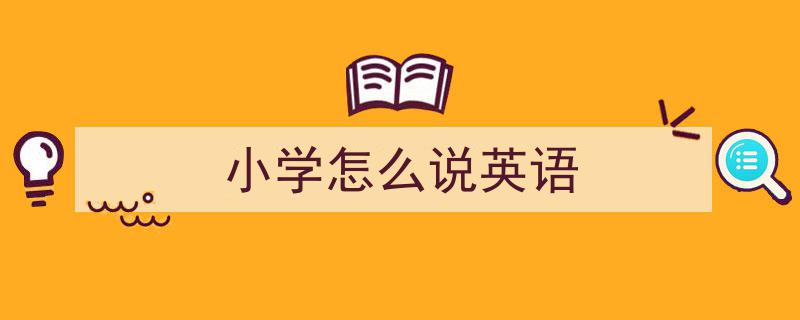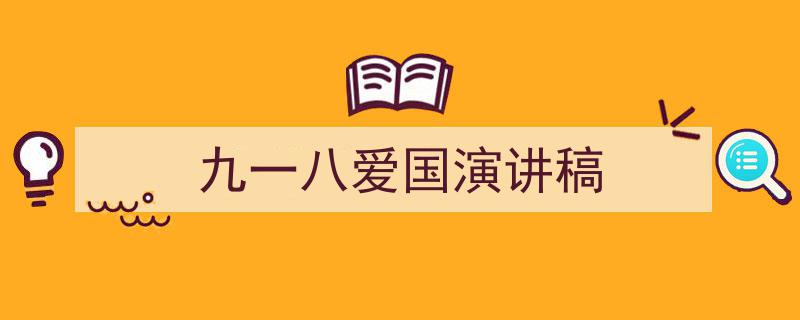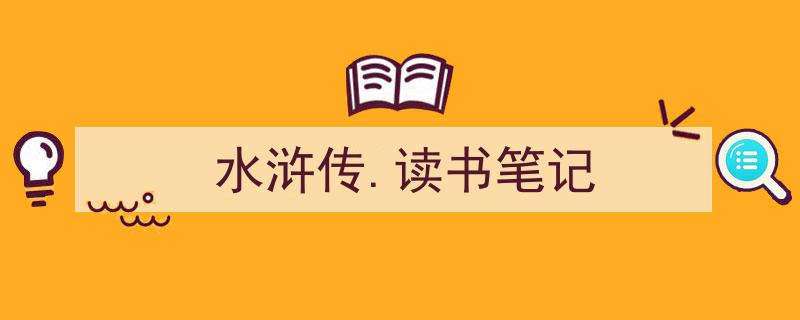欢迎来到58原创网网
格策美文教你学写《小学英语六年级的题目》小技巧(精选5篇)
更新日期:2025-08-05 17:15

写作核心提示:
这是一篇关于小学英语六年级作文应该注意哪些事项的文章,希望能帮助到同学们:
"小学英语六年级作文写作要点:笔下生花,自信表达"
不知不觉,我们已经进入了小学英语学习的关键阶段——六年级。在这个阶段,英语作文不再是简单的单词堆砌,而是要求我们能够运用所学知识,表达更清晰、更完整的想法。想要写好六年级的英语作文,取得好成绩,需要注意以下几个关键事项:
"一、 仔细审题,把握要点 (Understand the Prompt)"
这是写好作文的第一步,也是最关键的一步。拿到题目后,千万不要急着下笔。
"明确主题 (Identify the Topic):" 弄清楚作文要写什么?是关于我的爱好、我的家庭、我的学校生活,还是描述一个节日或一次活动? "抓住关键词 (Catch Key Words):" 题目中往往包含一些核心词汇,这些词是作文内容的主体,必须围绕它们来写。例如,题目是"My Best Friend",就要围绕朋友的特点、你们之间的故事等来展开。 "理解要求 (Understand Requirements):" 注意题目是否有字数要求?是否需要分段?有没有特定的句式或时态要求?这些都要仔细阅读,确保不遗漏任何信息。
"二、 构思清晰,列出提纲 (Plan Your Ideas)"
审题后,动笔前,花几分钟时间构思一下内容,就像
沈阳小学六年级第二单元50道专项练习附参考答案解析
以下是针对沈阳小学六年级英语上册第二单元的50道专项练习(涵盖语法、句型、词组拓展、同义句转换、选择填空)及参考答案解析,结合教材重点设计,供练习使用:
一、词组拓展(10题)
1. 看报纸 → read a newspaper
2. 做早操 → do morning exercises
3. 听音乐 → listen to music
4. 看电视 → watch TV
5. 写邮件 → write an email
6. 打电话 → make a phone call
7. 玩电脑游戏 → play computer games
8. 打扫房间 → clean the room
9. 洗衣服 → wash clothes
10. 做饭 → cook dinner
二、同义句转换(10题)
1. What are you doing? → What are you up to?
2. He is reading a book. → He is having a book.
3. They are playing football. → They are having a football game.
4. I am doing my homework. → I am working on my homework.
5. She is cleaning the room. → She is tidying the room.
6. Is he watching TV? → Is he viewing TV?
7. We are listening to music. → We are enjoying music.
8. Are you cooking? → Are you making food?
9. It’s time for lunch. → It’s time to have lunch.
10. She often walks to school. → She often goes to school on foot.
三、单项选择(30题)
1. What ______ your mother doing?
A. is B. are C. do
(答案:A 解析:主语your mother是第三人称单数,be动词用is)
2. They ______ playing basketball now.
A. am B. is C. are
(答案:C 解析:主语they是复数,be动词用are)
3. My brother often ______ books in the evening.
A. read B. reads C. reading
(答案:B 解析:often表示一般现在时,主语是第三人称单数,动词用reads)
4. Look! The girl ______ in the park.
A. runs B. running C. is running
(答案:C 解析:look提示动作正在进行,用现在进行时be+doing)
5. —______ are you going? —To the library.
A. What B. Where C. When
(答案:B 解析:答语是地点,用where提问)
6. It’s 7:00 a.m. We ______ breakfast.
A. have B. are having C. had
(答案:B 解析:具体时间点提示动作正在进行)
7. She ______ TV every night.
A. watch B. watches C. is watching
(答案:B 解析:every night表示一般现在时,主语是第三人称单数)
8. —Is he cleaning the window? —______
A. Yes, he does. B. Yes, he is. C. No, he isn’t.
(答案:B 解析:现在进行时的一般疑问句用be动词)
9. They usually ______ to school by bike.
A. go B. goes C. are going
(答案:A 解析:usually表示一般现在时,主语是复数)
10. My sister ______ a letter now.
A. writes B. is writing C. write
(答案:B 解析:now提示现在进行时)
11. —What’s Tom doing? —He ______ music.
A. listen to B. listens to C. is listening to
(答案:C 解析:问句是现在进行时,答语也用现在进行时)
12. It’s time ______ class.
A. to B. for C. in
(答案:B 解析:It’s time for+名词,意为“到做某事的时间了”)
13. We ______ a picnic next Sunday.
A. have B. will have C. are having
(答案:B 解析:next Sunday表示将来时,用will+动词原形)
14. —______ do you go to bed? —At 9:30 p.m.
A. What B. When C. How
(答案:B 解析:答语是时间,用when提问)
15. She ______ not like swimming.
A. do B. does C. is
(答案:B 解析:主语是第三人称单数,否定句用doesn’t)
16. Look! The birds ______ in the sky.
A. fly B. are flying C. flies
(答案:B 解析:look提示现在进行时)
17. My parents ______ in the kitchen now.
A. cook B. cooks C. are cooking
(答案:C 解析:now提示现在进行时,主语是复数)
18. —______ is your father? —He’s a doctor.
A. What B. How C. Where
(答案:A 解析:询问职业用what)
19. I ______ to the park yesterday.
A. go B. went C. am going
(答案:B 解析:yesterday表示过去时,用went)
20. They ______ basketball at this time yesterday.
A. play B. played C. were playing
(答案:C 解析:at this time yesterday表示过去进行时)
21. There ______ a book and two pens on the desk.
A. is B. are C. am
(答案:A 解析:there be句型遵循“就近原则”,a book是单数)
22. —Can you ______ English? —Yes, a little.
A. speak B. say C. talk
(答案:A 解析:说某种语言用speak)
23. He ______ his homework every day.
A. finish B. finishes C. is finishing
(答案:B 解析:every day表示一般现在时,主语是第三人称单数)
24. —______ is the weather today? —It’s sunny.
A. What B. How C. Where
(答案:B 解析:询问天气用How is the weather? 或What’s the weather like?)
25. We ______ a good time last weekend.
A. have B. had C. are having
(答案:B 解析:last weekend表示过去时)
26. She ______ a red dress today.
A. wears B. is wearing C. wear
(答案:B 解析:today强调当前的状态,用现在进行时)
27. —______ books do you have? —Ten.
A. How many B. How much C. How old
(答案:A 解析:books是可数名词复数,用how many提问数量)
28. My brother ______ to school by bus every day.
A. go B. goes C. is going
(答案:B 解析:every day表示一般现在时,主语是第三人称单数)
29. They ______ TV when I came in.
A. watch B. are watching C. were watching
(答案:C 解析:when引导的时间状语从句,主句用过去进行时)
30. —______ you help me? —Sure.
A. Do B. Can C. Are
(答案:B 解析:表示请求用Can you...?)
以上练习覆盖了第二单元核心语法(现在进行时、一般现在时、一般过去时等)、常用句型及词组,可结合教材内容针对性巩固。
沈阳小学六年级英语一般现在时考点易错陷阱选择填空50道附答案
以下是为沈阳小学六年级英语上册设计的一般现在时考点易错陷阱选择填空50道及参考答案解析,围绕时态标志词、主谓一致、动词形式变化等核心考点,针对性设置易错点:
一般现在时选择填空专练(50道)
1. My brother often ______ football on weekends.
A. play B. plays C. playing D. played
2. ______ your parents usually watch TV in the evening?
A. Do B. Does C. Are D. Is
3. Lucy ______ to school by bike every day.
A. go B. goes C. going D. is going
4. There ______ a lot of books in the library.
A. is B. are C. am D. be
5. He ______ like playing basketball. He likes swimming.
A. don’t B. doesn’t C. isn’t D. aren’t
6. ______ Tom and Jim often go to the park together?
A. Do B. Does C. Is D. Are
7. My mother ______ breakfast for us every morning.
A. cook B. cooks C. cooking D. is cooking
8. The sun ______ in the east and ______ in the west.
A. rise; set B. rises; sets C. rising; setting D. rose; set
9. They ______ English class on Fridays.
A. have B. has C. having D. are having
10. ______ your sister ______ to music after school?
A. Do; listen B. Does; listens C. Does; listen D. Is; listen
11. My grandparents ______ in the countryside.
A. live B. lives C. living D. is living
12. She ______ very hard at school.
A. study B. studies C. studying D. is studying
13. ______ there any milk in the glass?
A. Is B. Are C. Am D. Be
14. We ______ not from Canada. We are from China.
A. am B. is C. are D. be
15. Peter ______ TV every evening, but now he ______ his homework.
A. watch; do B. watches; does C. watches; is doing D. is watching; does
16. The earth ______ around the sun.
A. go B. goes C. went D. is going
17. ______ your father often ______ newspapers after dinner?
A. Do; read B. Does; read C. Does; reads D. Is; read
18. They ______ to school by bus every day.
A. go B. goes C. going D. are going
19. My cat ______ fish very much.
A. like B. likes C. liking D. is liking
20. ______ you ______ vegetables?
A. Do; like B. Does; like C. Do; likes D. Are; like
21. She ______ up at 6:30 every morning.
A. get B. gets C. getting D. is getting
22. ______ your friends often play computer games?
A. Do B. Does C. Is D. Are
23. There ______ a pen and two pencils in my pencil-box.
A. is B. are C. am D. be
24. He ______ to bed late on weekends.
A. go B. goes C. going D. is going
25. ______ your teacher ______ in the office now?
A. Do; work B. Does; work C. Is; working D. Does; working
26. The students ______ their homework every day.
A. finish B. finishes C. finishing D. are finishing
27. My uncle ______ in a hospital. He is a doctor.
A. work B. works C. working D. is working
28. ______ there any books on the desk?
A. Is B. Are C. Am D. Be
29. We ______ English every morning.
A. study B. studies C. studying D. are studying
30. She ______ not like noodles. She likes rice.
A. don’t B. doesn’t C. isn’t D. aren’t
31. ______ Tom ______ football with his friends on Sundays?
A. Do; play B. Does; play C. Does; plays D. Is; play
32. My little sister ______ toys every day.
A. play with B. plays with C. playing with D. is playing with
33. The train ______ at 8:00 every morning.
A. leave B. leaves C. leaving D. is leaving
34. ______ your parents ______ in this city?
A. Do; live B. Does; live C. Do; lives D. Are; live
35. There ______ some water in the bottle.
A. is B. are C. am D. be
36. He ______ TV at night. He ______ books.
A. doesn’t watch; reads B. don’t watch; read C. isn’t watch; reads D. doesn’t watches; reads
37. ______ the dog ______ in the garden?
A. Do; run B. Does; run C. Does; runs D. Is; run
38. They ______ to the cinema every month.
A. go B. goes C. going D. are going
39. My father ______ coffee, but he ______ tea.
A. like; don’t like B. likes; doesn’t like C. likes; don’t like D. like; doesn’t like
40. ______ you ______ to school on foot?
A. Do; go B. Does; go C. Do; goes D. Are; go
41. The moon ______ around the earth.
A. move B. moves C. moved D. is moving
42. ______ your brother ______ basketball?
A. Do; play B. Does; play C. Does; plays D. Is; play
43. There ______ two chairs and a table in the room.
A. is B. are C. am D. be
44. She ______ English songs very well.
A. sing B. sings C. singing D. is singing
45. ______ your mother ______ cooking?
A. Do; like B. Does; like C. Does; likes D. Is; like
46. We ______ to the park on Sundays.
A. go B. goes C. going D. are going
47. He ______ up early every day.
A. get B. gets C. getting D. is getting
48. ______ there a map on the wall?
A. Is B. Are C. Am D. Be
49. My friends ______ in Beijing.
A. live B. lives C. living D. is living
50. She ______ not at home. She ______ at school.
A. is; is B. are; are C. is; are D. are; is
参考答案及解析
1. B 解析:主语“my brother”是第三人称单数,谓语动词用第三人称单数形式“plays”。
2. A 解析:主语“your parents”是复数,助动词用“do”。
3. B 解析:主语“Lucy”是第三人称单数,谓语动词“go”变第三人称单数“goes”。
4. B 解析:“a lot of books”是复数,“there be”句型遵循就近原则,用“are”。
5. B 解析:主语“he”是第三人称单数,否定句用“doesn’t”(后接动词原形)。
6. A 解析:主语“Tom and Jim”是复数,助动词用“do”。
7. B 解析:主语“my mother”是第三人称单数,谓语动词“cook”变“cooks”。
8. B 解析:描述客观真理,用一般现在时;主语“the sun”是第三人称单数,动词用“rises”“sets”。
9. A 解析:主语“they”是复数,谓语动词用原形“have”。
10. C 解析:主语“your sister”是第三人称单数,助动词用“does”,后接动词原形“listen”。
11. A 解析:主语“my grandparents”是复数,谓语动词用原形“live”。
12. B 解析:主语“she”是第三人称单数,动词“study”变“studies”(以“辅音+y”结尾,变y为i加es)。
13. A 解析:“milk”是不可数名词,“there be”用“is”。
14. C 解析:主语“we”是复数,be动词用“are”。
15. C 解析:第一空“every evening”表习惯性动作,用一般现在时,主语“Peter”是三单,用“watches”;第二空“now”表现在进行时,用“is doing”。
16. B 解析:客观真理用一般现在时,主语“the earth”是三单,用“goes”。
17. B 解析:主语“your father”是三单,助动词用“does”,后接动词原形“read”。
18. A 解析:主语“they”是复数,动词用原形“go”。
19. B 解析:主语“my cat”是三单,动词“like”变“likes”。
20. A 解析:主语“you”是第二人称,助动词用“do”,后接动词原形“like”。
21. B 解析:主语“she”是三单,动词“get”变“gets”。
22. A 解析:主语“your friends”是复数,助动词用“do”。
23. A 解析:“there be”就近原则,“a pen”是单数,用“is”。
24. B 解析:主语“he”是三单,动词“go”变“goes”。
25. C 解析:“now”表现在进行时,用“is working”。
26. A 解析:主语“the students”是复数,动词用原形“finish”。
27. B 解析:主语“my uncle”是三单,动词“work”变“works”。
28. B 解析:“books”是复数,“there be”用“are”。
29. A 解析:主语“we”是复数,动词用原形“study”。
30. B 解析:主语“she”是三单,否定句用“doesn’t”。
31. B 解析:主语“Tom”是三单,助动词用“does”,后接动词原形“play”。
32. B 解析:主语“my little sister”是三单,动词短语“play with”变“plays with”。
33. B 解析:表习惯性时间表,用一般现在时,主语“the train”是三单,用“leaves”。
34. A 解析:主语“your parents”是复数,助动词用“do”,后接动词原形“live”。
35. A 解析:“water”是不可数名词,“there be”用“is”。
36. A 解析:第一空主语“he”是三单,否定句用“doesn’t watch”;第二空用“reads”(三单形式)。
37. B 解析:主语“the dog”是三单,助动词用“does”,后接动词原形“run”。
38. A 解析:主语“they”是复数,动词用原形“go”。
39. B 解析:主语“my father”是三单,肯定句用“likes”,否定句用“doesn’t like”。
40. A 解析:主语“you”是第二人称,助动词用“do”,后接动词原形“go”。
41. B 解析:客观真理用一般现在时,主语“the moon”是三单,用“moves”。
42. B 解析:主语“your brother”是三单,助动词用“does”,后接动词原形“play”。
43. B 解析:“there be”就近原则,“two chairs”是复数,用“are”。
44. B 解析:主语“she”是三单,动词“sing”变“sings”。
45. B 解析:主语“your mother”是三单,助动词用“does”,后接动词原形“like”。
46. A 解析:主语“we”是复数,动词用原形“go”。
47. B 解析:主语“he”是三单,动词“get”变“gets”。
48. A 解析:“a map”是单数,“there be”用“is”。
49. A 解析:主语“my friends”是复数,动词用原形“live”。
50. A 解析:主语“she”是单数,be动词用“is”。
以上题目涵盖一般现在时的核心考点,尤其针对第三人称单数变化、助动词使用、“there be”句型、客观真理用法等易错点进行强化,适合六年级学生巩固练习。
文章说明
本站部分资源搜集整理于互联网或者网友提供,仅供学习与交流使用,如果不小心侵犯到你的权益,请及时联系我们删除该资源。






